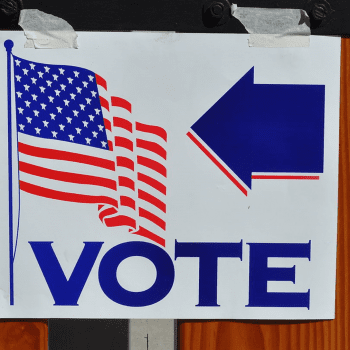![https://commons.wikimedia.org/wiki/File%3ADonald_Trump_(8567813820)_(2).jpg; By Gage Skidmore from Peoria, AZ, United States of America (Donald Trump) [CC BY-SA 2.0 (http://creativecommons.org/licenses/by-sa/2.0)], via Wikimedia Commons](https://wp-media.patheos.com/blogs/sites/533/2016/05/Donald_Trump_8567813820_2.jpg)
How often have you read that this election will end up destroying the Republican Party, as it splinters into two, and whatever its replacement is, will in short order become the new second major party and the Republican Party itself will ultimately be as buried in the past as the Whigs or the Federalists?
That’s nonsense.
The primary complaint about Trump is not a matter of divisions in the party with respect to ideology. This is not a matter of moderates vs. conservatives, nor of social conservatives vs. libertarian types. Sure, there are matters of dispute (more on this later) but the primary motive for NeverTrumpism is not this.
The primary complaint is a matter of character, e.g., in this National Review article. Donald Trump has crossed every line of how civilized people behave, with, for instance, his “Muslim moratorium” and accusations that Mexico sends rapists to the U.S. He calls for executing family members of terrorists, and shows no regard for the fact that what he is proposing is a literal war crime. He encourages violence at his rallies, or, at least, doesn’t discourage it. His business ventures are shady, especially Trump University. And his policies, or lack thereof: his lack of interest in serious study of policy issues and his approach of seemingly deciding his policy declarations based on what he thinks will be the most popular, are both fundamentally issues of character.
What are the policy objections to Trump? His true beliefs are so unknown that there isn’t really an ideologically-based opposition — and many of the Republicans now rediscovering party unity seem to be taking the approach that Trump is, in the end, indifferent to actual policy decisions, so long as he has the title of “president,” and can therefore be controlled, and they’ll be able to implement their agenda behind the scenes.
If you take his statements at face value, then, yes, there’s this:
Trump supports immigration restrictionism. His opponents are “Chamber of Commerce Republicans” who want de facto open borders to keep wages low and profits flowing to business.
Trump supports trade restrictions and tarriffs. His opponents are Big Business Republicans who want to keep benefitting from imports.
Trump supports America First-ism and isolationism in foreign policy. His opponents are chicken-hawk interventionists.
Trump supports . . . well, what else? And is there anything coherent and compelling in the contrary positions, in a way that would really pull people together?
I don’t see it. And a party-splintering can’t consist of a small number of party “establishment” and major donors declaring the split, without the rank-and-file. Besides which, whether he really moves forward with any of these proposals is anyone’s guess.
What happens next isn’t at all clear. Does Trump make-nice with as many elected officials as possible? Does he pivot, “say sorry” for the line-crossing statements? Or is his outrageousness simply too much of what he is, for him to shed it to try to appear “presidential”? And there are the two wild cards: the Trump University lawsuits and, on the other hand, the investigation into Clinton’s e-mail server.
But it’s hard to see a third-party candidate capture the imagination of enough voters to make any difference, and without that, the status quo stays.
Now, if the scenario were different, if there were, in fact, three candidates who split the vote more equally throughout the campaign season, and a contested convention with a bruising fight rather than compromises and deal-making, then we’d be talking about a different story. And hindsight (such as Megan McArdle’s rather persuasive recent piece) is 20/20, so perhaps the “Establishment” will have learned that picking dynasties and supporting amnesty isn’t a path forward — but then again, individuals who claimed the label of great strategists thought that amesty was exactly the right policy in their post-mortem after 2012, so whether they learn the right lessons this time, after the dust has cleared, is anyone’s guess.
Image: https://commons.wikimedia.org/wiki/File%3ADonald_Trump_(8567813820)_(2).jpg; By Gage Skidmore from Peoria, AZ, United States of America (Donald Trump) [CC BY-SA 2.0 (http://creativecommons.org/licenses/by-sa/2.0)], via Wikimedia Commons













